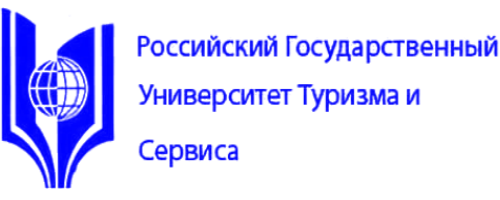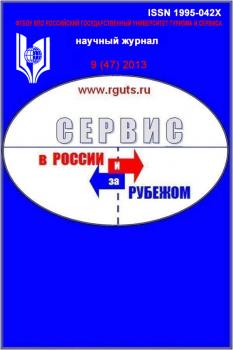The article deals with customer-oriented approach as a fundamental factor for achieving stability of the financial and economic indicators for the operation and growth of the tourism enterprise. The article provides recommendations to generate measures that will ensure the development of the company through high class service offerings. Customer-oriented approach is the one of the most important conditions for the tourism company’s success. In this case, rendering of tourist services is based on understanding and meeting the needs of consumers. . The main purpose of customer orientation is achieving consumer satisfaction and, as a consequence, retention and preservation of it. Organizational difficulties arise in the selection of personnel for work in tourist enterprises. The standards of functioning of tourism enterprises depend not only on the competitive environment, but also on capabilities of organization purely individualized products according to customer needs. The peculiarities of the financial and economic situation are forced to look for solutions related to investment processes. Travel company not only organizes tours, but forms the very concept of recreation through promoting and positioning certain opportunities for spending time. Virtually any company working in the sphere of tourist services considers customer-oriented approach as one of its key competitiveness factors. Today, in times of the crisis, the problem of customer loyalty is even more updated. Tourism businesses are no exception. The large tourism company and small travel agencies look for "their" customers, and when finding, try to provide them comfort, convenience in the provision of tourist services, and wish to maintain a benevolent attitude. The formation of customer loyalty to tourism enterprise remains one of the main management goals of any travel company. High degree of customer loyalty and devotedness to the company is almost fanatical veneration of the brand, trademarks of the organization.
customer-oriented approach, service, maintenance, tourism, structure
1. Agamirova E.V., Agamirova E.V. Sozdanie iskusstvennoy motivatsii dlya formirovaniya klientskikh potokov v turistskie regiony. Vestnik Assotsiatsii VUZov turizma i servisa. - 2015. - T. 9, № 1. - S. 60-68.
2. Alekseeva Yu.V., Bulygina I.I. Marketingovyy analiz turistskogo rynka. Sotsial´no-ekonomicheskie tendentsii razvitiya mirovykh i rossiyskikh rynkov: teoriya i praktika: materialy mezhdunarodnoy nauchno-prakticheskoy konferentsii. - Saratov: Saratovskiy sotsial´no-ekonomicheskiy institut (filial) REU im. G.V. Plekhanova, 2015. - S. 129-130.
3. Bardashevich A.B. Sovremennye tendentsii obrazovatel´nogo protsessa v turizme. Kontsept. - 2015. - Ekonomicheskoe i gumanitarnoe obrazovanie v turizme i gostepriimstve. Elektronnyy resurs: URL: http://e-koncept.ru/2015/95230.htm. (data obrashcheniya: 04.11.2015).
4. Bychkova Yu.O. Uvelichenie auditorii potentsial´nykh klientov v turizme s primeneniem sovremennykh informatsionnykh tekhnologiy. Sovremennye nauchnye issledovaniya i innovatsii. - 2015. - № 3-2 (47). - S. 26-28.
5. Kormyagina N.N. Analiz i modelirovanie potrebitel´skogo i kommunikativnogo povedeniya molodezhi v sfere turizma. Naukovedenie. - 2015. - T. 7, № 1 (26). Elektronnyy resurs: URL: http://naukovedenie.ru/PDF/101EVN115.pdf (data obrashcheniya: 06.11.2015).
6. Kraynova O.S. Potentsial vnedreniya kontseptsii servisnoy logistiki na predpriyatiyakh industrii turizma i gostepriimstva dlya povysheniya ikh konkurentosposobnosti. Prioritetnye nauchnye napravleniya: ot teorii k praktike: materialy Mezhdunarodnoy nauchno-prakticheskoy konferentsii / pod obshch. red. A.I. Vostretsova. - Neftekamsk: OOO «Nauka i obrazovanie», 2015. - S. 161-164.
7. Kushcheva N.B., Terekhova V.I. Podgotovka spetsialistov dlya industrii turizma i gostepriimstva na osnove problemno-orientirovannoy modeli obucheniya. Naukovedenie. - 2015. - T. 7. № 2 (27). Elektronnyy resurs: URL: http://naukovedenie.ru/PDF/84PVN215.pdf (data obrashcheniya: 04.12.2015).
8. Lassi M.Yu., Rubtsova N.V. Tsepochka sozdaniya tsennosti turistskogo produkta v Rossii: sovremennoe sostoyanie i tendentsii razvitiya. Izvestiya Irkutskoy gosudarstvennoy ekonomicheskoy akademii. - 2015. - T. 25, № 1. - S. 45-50.
9. Lysenko V.V. Sistema pooshchreniy sotrudnikov organizatsiy, predostavlyayushchikh turistskie uslugi, kak effektivnyy instrument povysheniya ikh loyal´nosti. Upravlenie personalom i intellektual´nymi resursami v Rossii. - 2015. - T. 4, № 2. - S. 20-23.
10. Mіlіnchuk O.V.V., Kiriєnko Yul.A.O.V. Standartizatsіya vіtchiznyanikh turistichnikh poslug v kontekstі єvropeys´koї іntegratsії. Vіsnik Zhitomirs´kogo derzhavnogo tekhnologіchnogo unіversitetu. Serіya: Ekonomіchnі nauki. - 2015. - № 2 (72). - S. 169-174.
11. Mironova A.I. K voprosu ob effektivnosti primeneniya baz dannykh v turizme. Sovremennye nauchnye issledovaniya i innovatsii. - 2015. - № 3-2 (47). - S. 145-146.
12. Panfilova A.P., Mishanova A.Yu. Intensivnye tekhnologii v izuchenii potrebnostey klientov v turizme. Vestnik Baltiyskoy pedagogicheskoy akademii. - 2015. - № 115. - S. 138-141.
13. Rozdol´skaya I.V., Makrinova E.I., Ledovskaya M.E., Lysenko V.V. Formirovanie strategii rynochnogo pozitsionirovaniya uslug sotsial´nogo turizma. Vestnik Belgorodskogo universiteta kooperatsii, ekonomiki i prava. - 2015. - № 2 (54). - S. 37-44.
14. Chepik V.D., Reysterman T.V. Formirovanie profil´noy informatsionnoy kompetentnosti menedzherov turizma. Uchenye zapiski universiteta im. P.F. Lesgafta. - 2015. - № 8 (126). - S. 193-198.
15. Popovic Z., Rondovic B. Online presence quality assessment in tourism companies of developing countries (montenegro case study). Ekonomichniy chasopis-XXI. 2015. № 5-6. S. 68-73.





